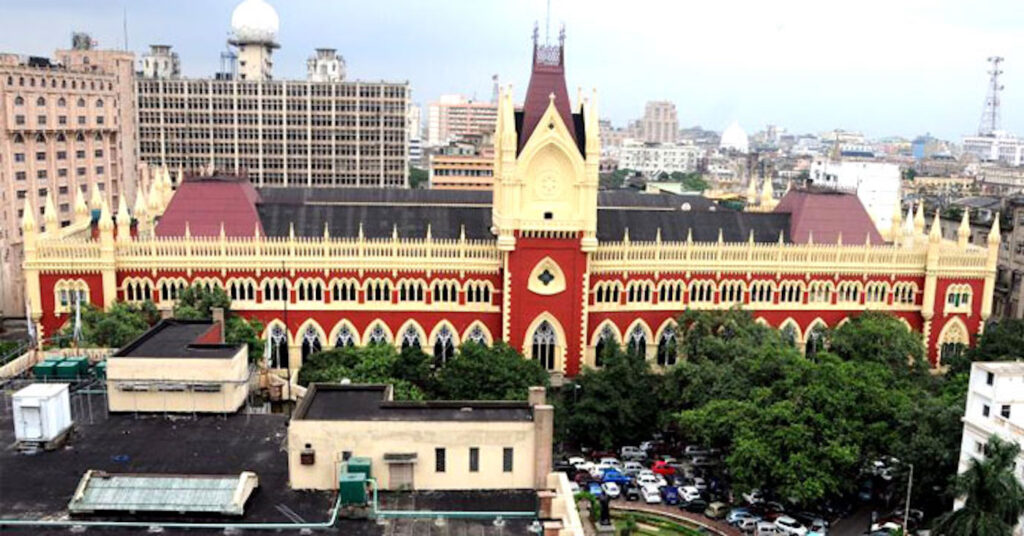COVID Patient Dies After Treatment by Impostor Doctor: Calcutta High Court Rejects Nursing Home Owner’s Request to Dismiss Case Against Her.

The Calcutta High Court decided not to dismiss a criminal case against a Nursing Home owner. She is accused of allowing a fake doctor to treat a COVID patient, knowing that the other accused was not a licensed medical professional. Justice Ajoy Kumar Mukherjee, in a Single-Judge Bench, stated that the investigation revealed a failure to verify medical documents, which contributed to the death of the victim, Moly Saha Halder. Therefore, initial charges under sections 304A and 120B of the IPC were found to be valid against the petitioner.
The complaint claims that in May 2021, the daughter of the person who filed the FIR contracted the coronavirus. The complainant and his son-in-law took her to M.F.C. Women and Child Care Nursing Home. It is alleged that another accused, Sudipto Sardar, treated her. Despite not having severe complications, she died in the hospital. The complaint was filed nearly five months after the incident. The complainant later learned from news reports that Sudipto Sardar was a fake doctor. He argues that this fake doctor’s treatment led to his daughter’s death, making the Nursing Home owner responsible.
The second party filed a complaint against the petitioner and one Sudipta Sardar, who is not the petitioner. The petitioner requested the court to dismiss the case. She pointed out that she had previously been granted bail. The petitioner’s lawyer, Chatterjee, argued that the so-called fake doctor was never associated with the petitioner’s Nursing Home and was not a paid or registered doctor. It was also argued that any alleged negligence must be closely linked to the cause of death to be considered an offense under section 304 A of the IPC, and without such a link, the criminal case against the petitioner should be dismissed.
On the other hand, the opposing party claimed that there was a specific charge against the petitioner that met the requirements of the offense under section 304A of the Indian Penal Code. They argued that the petitioner’s actions in allowing a fake doctor to work as a Resident Medical Officer in her Nursing Home constituted the essential elements of the offense. The Bench noted that there were specific allegations against the petitioner, stating that she had directed the fake doctor to treat the victim, fully aware that he was not a registered medical practitioner. Additionally, during witness examinations under sections 161 and 164 of the Code, it was alleged that the petitioner knowingly entrusted the fake doctor with the patient’s care and even encouraged the patient’s family to continue treatment with him, calling him a good doctor.
The Bench clarified that section 304A applies to situations where there is no intent to kill and no awareness that the action could likely result in death. This is why it is separate from sections 299 and 300 of the IPC. This section deals with cases where neither intent nor knowledge is involved. It stated, “This section applies to actions that are reckless or negligent and are directly linked to the victim’s death.”
The Bench also highlighted the circumstances under which the power under section 483 of the CrPC can be used:
- If the complaint’s allegations, taken at face value, do not show the essential elements of the alleged offense.
- If the allegations are clearly absurd and unlikely, making it impossible for a reasonable person to conclude there are enough grounds to proceed.
- If the magistrate’s decision to issue a process is arbitrary and based on no evidence or irrelevant information.
- If there are fundamental legal flaws in the case.
- If it is necessary to prevent a miscarriage of justice.
- If inherent power must be used to stop the misuse of legal processes.
- If continuing the proceedings would not serve justice.
The Bench stated that the allegations in the complaint and the evidence gathered during the investigation clearly indicate a serious crime. Regarding bail, the Bench noted that the previous bail decision was made while the investigation was still ongoing. After the investigation was finished, the agency filed a charge sheet against the petitioner with enough evidence. The Bench mentioned that any comments made during earlier proceedings do not have to be followed in this case or in the overall criminal process. Since there is enough evidence to suggest a serious crime against the accused, the Bench decided not to dismiss the case. The Revision was dismissed, but the Bench clarified that this dismissal does not stop the petitioner from raising their concerns during the charge framing or later in the trial.
Cause Title: Dr. Shiuli Mukherjee Vs. The State of West Bengal & Anr. [Case No. CRR 1711 of 2022]









